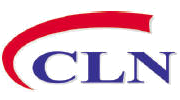More important than a RRSP
- Details
- Created: Wednesday, 07 February 2007 17:38
- Written by Tom Lipp
What could be more important than RRSPs – especially this time of year?
RRSPs are not just retirement tools but can also be used to purchase a first home or a new home if you have spent the last five years renting, to fund tuition and to supplement income in desperate situations. Additionally, they are used to reduce net income and thereby qualify for some additional government benefits in the following taxation year. These benefits include GST rebates, Child Care Benefits, increased Canada Educational Savings Grants and reduced Alberta Health Care Premiums to name a few. Although I recommend (and sell) RRSPs, they are not my major concern.
A recent article in the Chicago Tribune states that average family debt among those 55 and older is now nearly $52,000—up from just over $20,000 in 1992.
I am alarmed at North American’s inability to handle cash. According to a survey by the National Endowment for Financial Education some 30 per cent of people in their 20’s say they frequently worry about their debt. Nearly two-thirds have debts averaging over $16,000. Why not learn from those who are older and wiser? Here’s why.
Older folk are no better off. A recent article in the Chicago Tribune states that average family debt among those 55 and older is now nearly $52,000—up from just over $20,000 in 1992. The figure includes mortgages, car loans, and credit card debt. A related story in the Wall Street Journal mentioned that 45 per cent of people in their 60s were carrying a mortgage in 2000—up from 34 per cent in 1980. And, 20 per cent were carrying a second mortgage in 2000—up from 7 per cent in 1980. This inability to manage money affects all North Americans.
The debt load for many families has increased as home equity takeouts generate instant cash. According to Eric Beauchesne for the Can West News Service in early January: For every dollar of disposable income they have, Canadian households owe nearly $1.25 in debt, a record high, and nearly double the 67 cents per dollar of income they owed in the mid 1980s. And their debts continue to rise much faster than their incomes, the Bank of Canada notes in a year-end assessment of the health of Canada’s financial system.
The Bank of Canada report goes on to say that conditions are not all that bad. Interest rates are relatively low and Canadian households are managing their debt carefully such that high debts are offset by high valued assets (i.e. high house prices and strong financial markets).
I disagree with the Bank of Canada. Stock markets and house values can come down quickly and when they do, lenders DO NOT reduce their debts proportionally. It’s like canoeing across a lake or down a river. The water can be right up to the edge and all is well unless there is a sudden move in the canoe or an unexpected wave. Similarly, debt levels have risen to record heights and gone unnoticed by many.
A capsized canoe causes stress, panic, splashing and loss. How can we prevent our financial canoe from tipping?
Prepare for storms before they hit. It’s time to review the basics in good cash management. This means starting with the essentials. I am planning to write a series of articles on the basics of cash management. As an accountant and financial planner with ten children, my wife and I need to know something on this topic.
In the months ahead we want to look at topics such as:
The most neglected truth to good cash management – what is it?
Teaching children how to manage money.
Should the house be used as a piggy bank?
What’s more important – physical fitness or financial fitness?
When is debt good and when is debt bad?
Should we live on a budget? Is a budget even biblical?
To rent or not to rent.
Living simpler in a complex world.
Think differently. Be part of the invisible minority.
So purchase an RRSP before March 1st but remember the instructions given to Christians in Romans 12:2 and apply these words to your financial life. “Do not be conformed to the world but be transformed by the renewing of your mind.” Think differently. Be part of the invisible minority.



